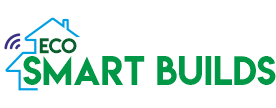Office 11, 34 Brindley Rd, Manchester M16 9HQ info@ecosmartbuilds.co.uk Office Open: 9.00 am - 6.00 pm
Sustainable Smart Homes: Eco-Friendly Living - ecosmartbuilds.co.uk
- You Are Currently Here!
- Home Home Comfort and ConvenienceSustainable Smart Homes: Eco-Friendly Living





Sustainable Smart Homes: Eco-Friendly Living
Explore how smart technology enhances sustainability by reducing energy consumption, improving resource management, and creating eco-friendly living spaces.
Sustainable living is becoming more important, and smart homes are at the forefront of this shift. By integrating eco-friendly technologies like solar panels, energy-efficient appliances, and smart water management systems, smart homes contribute significantly to reducing environmental impact. This blog will explore how smart homes can create more sustainable living environments through technology.
Smart Energy Solutions
Solar Power Integration
Many smart homes are now equipped with solar panels, providing a renewable energy source that reduces reliance on traditional electricity grids. Smart systems monitor energy usage and optimize solar power efficiency.
Energy-Efficient Appliances
Smart appliances, such as refrigerators and washing machines, are designed to use less energy. These devices adjust their operation based on energy demand, helping lower overall consumption.
Water Conservation in Smart Homes
Smart Water Management
Smart irrigation systems, faucets, and showers help conserve water by monitoring usage and detecting leaks. They automatically adjust water flow based on needs, ensuring no unnecessary wastage.
Greywater Recycling
Some smart homes include greywater systems, which recycle water from sinks and showers for landscaping or other non-drinking purposes, promoting sustainability.
Benefits of Sustainable Smart Homes
Smart homes reduce the carbon footprint by utilizing renewable energy and conserving water, making them eco-friendly.
Sustainable smart homes help homeowners save on energy and water bills by optimizing resource usage and integrating energy-efficient systems.
Homes with sustainable features are often seen as more desirable, attracting eco-conscious buyers and boosting property value.
Challenges of Sustainable Smart Homes
Installing sustainable technologies like solar panels and smart water systems can be costly upfront. However, the long-term savings on utilities often make it a worthwhile investment.
Keeping smart systems updated and ensuring that all devices continue to function as intended can require additional maintenance over time.
Conclusion:
Sustainable smart homes represent the future of eco-friendly living. By integrating smart energy solutions and water conservation systems, these homes contribute to reducing environmental impact while offering long-term cost savings. As technology advances, sustainable smart homes will become even more efficient and accessible to homeowners.
Archives
Categories
Archives
Recent Post
Integrating Multiple Smart Devices for a Seamless Experience
February 24, 2025Eco-Friendly Smart Home Features for Sustainability Enthusiasts
February 24, 2025Categories
Meta
Calender